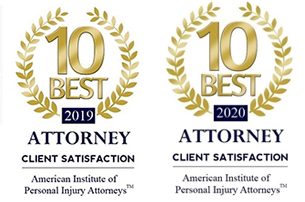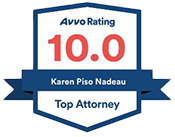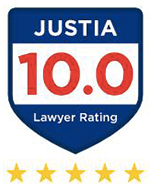
By: Leslie S. Harkavy, Esquire and Karen Piso Nadeau, Esquire
With Phase 2 starting Monday June 8th, there will be more of us on the road again.
Recently, Massachusetts Governor Charlie Baker announced the 1st Step of Phase 2 of the Massachusetts re-opening would begin on Monday, June 8th (with the start for Step 2 to be determined). On June 8th, retail stores, childcare facilities and day camps, outdoor table service at restaurants, hotels and other lodging, personal services without close physical contact such as home cleaning, photography, and tutoring, youth sports, outdoor recreational facilities such as pools, playgrounds and driving ranges, driving schools, outdoor historical spaces, funeral homes and non-athletic youth instructional classes are all allowed to be open. Also included in Step 1 of Phase 2 are non-urgent health procedures like routine dental care and in person checkups. Step 2 will include table service at restaurants and close contact personal services such as hair removal, nail and skin care, massage therapy, makeup salons, tattoo and piercing and personal training. Step 2 will begin when the data indicates enough progress has been made according to Charlie Baker.
Phase 2 will finally put behind us some of the stay at home practices we all followed since early March when the coronavirus took hold of the state of Massachusetts. With businesses reopening and the COVID numbers continuing to decrease (hopefully for the foreseeable future), all of us will be venturing out a little more and we will see a lot more cars on the road, increasing the risk of car accidents. The fact is that car crashes can occur to anyone, anywhere and at any time. This is a good time to brush up on what to do if a family member is in a car accident. We encourage you to talk to your family and kids that are driving or getting into friends’ cars. Also, review this checklist, print it and place it in each of your vehicles glove boxes or center consoles for easy access.
There are a few things you need to do to protect yourself and your interests if you are in a car accident.
Car Accident Checklist
1. Stop at the Scene of the Accident
You are legally obligated to stop if you are in an accident. This is true even if you think there is no damage. Never drive away from the scene of an accident.
2. Check Yourself and Check Your Passengers for Injuries
If you or anyone in your vehicle is injured, call 911 or ask someone else to call emergency services. They will ask if you are injured, and if you are, it is best to remain in place until emergency help arrives.
3. Protect the Scene
It is best that vehicles remain where they are if it is safe to do so and do not interfere with traffic. If you are safe and not causing a major problem with traffic, do not move your vehicle. If possible, wait for police to arrive first before moving your vehicle so police can get a full picture of what happened.
If remaining in your vehicle could be hazardous, move to safety on the sidewalk or by the side of the road out of harm’s way.
Keep flashers on or if it is dark and your lights don’t work, you should have a flashlight in your car, to keep you safe.
4. Call the Police
Even if there are no serious injuries or property damage, it is a good idea to call the police. They will typically complete a Police Report, provide you with an exchange form that has all the details and contact and insurance information you will need about the other party and assist in the exchange of information so you can submit the necessary information to your insurance company.
Police will also speak to the parties involved and any witnesses to determine how the accident happened.
5. Communicating with Police & Others
Never admit you are responsible for the accident. The police usually talk to all the drivers involved to try to determine how the accident occurred. It is important you never admit fault. Cooperate with police at the scene, answer their questions but do not guess or misstate any facts.
If you are asked if you are injured and you are not sure, then tell police you are not sure. Don’t say you are not injured. It is not unusual for you to begin to experience pain or notice injuries hours after the accident.
Another important tip is to limit your discussion about the accident with the other party. Discussing details with the other party may be used against you later. Do exchange contact information and insurance information with the other party. Police usually help with this but it is a good idea to make sure you have it before you leave the scene. Make sure you get name, address, telephone number, license plate number, insurance information, and description of the other vehicle involved. It is a good idea to get the information yourself from the registration and license of the other party or better yet, take a photo with your phone.
If the other party tries to have you handle any damage without insurance or tries to get you to admit fault, do not agree to this or feel pressure to do so. Get the information you need and stick to an exchange of information to protect you.
Also get the identity of all witnesses and passengers in any vehicles involved. We handled a case where the junior operator denied having any passengers in his vehicle when he ran a stop sign, but our client saw another person in the vehicle. We also have handled a number of cases where the other party adds passengers to their vehicle who claim they were injured. Finally, make sure you have the identity of the police officer and the police station responding. State Police respond to state highways for example, and local police respond to accidents on local roads.
6. Take Pictures
We recommend you use your cell phone or camera to take pictures at the scene of the vehicles involved, the damage to the vehicles, the accident scene, the other driver’s license, identification and registration. Taking photographs at different angles and from different locations, near and further away is helpful. Also, take a photograph of the license plates of any of the other vehicles involved as well as photograph the entire vehicle and not just the damage. You never know what may be helpful. We used a photograph of a pickup truck taken at the scene to show the tinted windshield and how it obstructed the driver’s vision on a case involving our client, a pedestrian, struck by a pick-up truck. Photographs should be taken safely and cautiously.
Also, if you have any visible injuries such as bruising, abrasions or cuts, you should take photographs of them as soon as possible after the accident. We tell our clients to take a lot of photographs. We prefer to have more than we need than too little. Also, we advise our clients to take a lot of photographs of their injuries over time showing the healing as well as any scars. We ask them to photograph any medical devices in use, like while they are using a wheelchair, walker, crutches or a cane. We also instruct them to take pictures of casts for broken bones, stitches or sutures for example.
7. Notify Your insurance Company
You need to notify your insurance company as soon as possible that you were involved in an accident. Massachusetts’s motor vehicle insurance policies contractually require you to immediately report the accident and cooperate with your insurance company in the investigation. You should confirm that you have Personal Injury Protection coverage known as “PIP benefits” to cover medical expenses and lost wages up to a total of $8,000.00. Also confirm that you have Medical Payments coverage known as “medpay” which provides an additional layer of coverage for medical expenses incurred due to the collision. Your insurance rates do not increase if you claim PIP and or medpay coverage, as they are considered no fault benefits in Massachusetts. Even with health insurance coverage such as Blue Cross or Harvard Pilgrim or Tufts, many of us still have deductibles and/ or copays. The motor vehicle insurance may reimburse you for your out of pocket medical costs. Also, PIP benefits have been welcomed life savers for some of our clients who have been unable to work due to the injuries suffered in the crash, recovering $8,000.00 of much needed money to cover their living expenses while they are out of work recovering from their injuries.
Your insurance company will open a claim for your accident and assign you a claims adjuster and claim number. Your insurance company will investigate your accident to make a determination as to the party that is at fault and responsible for the accident.
8. Keep a File & Write Down Your Version of Accident Events
When we have our initial client meeting, we give our client a nice folder and tell him or her to keep all paperwork and documents related to the accident in one place all together to make things easy. Although the police will do their part in preparing a police report with their conclusions about the accident, you should also write down or type up your own version as soon as possible following the accident. This will help memorialize details and important information that may help you down the road. Memories fade with the passage of time.
We always tell our clients to include as much detail as they can even if they don’t think it is important like where they were coming from and where they were going to, speed limits and your speed, weather, road conditions and other small details.
9. Complete an Operator’s Report
Massachusetts requires drivers in an accident to file a Vehicle Crash Operator Report if anyone was killed, injured or if there was property damage in excess of $1,000.00. This report needs to be filed with the Registrar of Motor Vehicles within 5 days of the accident. The person completing the report must also send a copy to the police department having jurisdiction on the way where the crash occurred.
If our clients contact us early enough, we can assist them in completing this operator’s report. Your insurance company will also assist you with filling out this report. The operator’s report is your version of the accident and should be carefully completed and reviewed for accuracy. Some of our clients who have already completed and filed their operator’s reports are shocked to learn that what they filed is later being used against them to deny their claims for personal injury or property damage.
The operator’s report will need the date, time and place of the accident as well as direction of travel, traffic signals, road conditions, weather, witnesses, information about the parties involved and the vehicles and description of the accident.
10. Seek Medical Attention
Some injuries will require parties to be taken by ambulance from the scene of the accident to a hospital where the injured party will get the medical attention he or she needs. However, often injuries from a car crash are not immediately apparent. Parties involved in the crash are often in shock with adrenaline running high. Many of our clients report noticing discomfort and bruising and feeling more pain a day or so after the auto accident. You should seek medical attention as soon as possible by seeing your primary care doctor or at an emergency room or urgent care facility.
- Consult an Attorney to Protect Your Interests
One of the most important things you should do after a car accident is to contact your attorney who is experienced handling car accidents to protect your interests. Your attorney can help walk you through the steps you need to take and make sure valuable evidence is protected and not destroyed. Often your insurance company will want to take your statement shortly after the accident. Your attorney can provide you with guidance before you provide a statement, as the statement you give will likely be a major factor in determining who is at fault and whose claims will be paid and whose claims will be denied.
In Massachusetts, although you are legally obligated to give a statement to your own insurance company, you have NO OBLIGATION to provide any statement to the other party’s insurance company. We advise our clients against giving a statement to the other party’s insurer as it more often than not will be used against you. Your attorney may also guide you with your vehicle damage claim and rental car reimbursement. Also, we make sure we protect our clients who have been injured in a car accident to make sure they are fully compensated for the harm caused by another and guide them as they seek medical treatment for the injuries suffered in a crash.
As personal injury lawyers, we work on a contingency fee basis. You do not pay us a retainer. There is no legal fee unless we recover compensation for you. We are paid our legal fee from the money you receive on your claim for personal injury.
In conclusion, no one likes to think about getting into a car accident. However, with businesses reopening in Massachusetts and the threat of the coronavirus declining, we will find ourselves and loved ones driving more and more. It is a good time to consider the steps to take to protect you and your family in the event of a car crash. Communication is key. We need to talk about it with other family members such as our teenagers who are driving or getting into friends’ vehicles and our teens and twenty somethings home from college or simply home driving our family vehicles. Make sure you are prepared and store this checklist in your vehicles. Be safe!
When someone is injured in a motor vehicle accident, a thorough investigation of the accident events is necessary to determine the cause of the collision and secure important information. As a victim of a car accident, make sure everything is done to protect your interests. The lawyers at Nadeau Harkavy LLC help victims and their families recover damages for their losses in serious injury and wrongful death cases arising from car crashes and other accidents. If you have any questions about your legal rights relating to a car accident, wrongful death or other accident, feel free to contact us for a free consult today at 617-674-7640.
Meet The Lawyers
With 60 years of combined experience serving injured victims in Massachusetts, our team has collaborated for nearly two decades, delivering a proven track record of outstanding results for clients. Guided by a philosophy of treating clients as we would our own family, we strive to ease our clients' journey from the initial phone call to case resolution. Committed to competing and fighting vigorously, we aim to hold insurance companies accountable to the fullest extent of the law. Our belief in close communication ensures the best possible outcomes, and our approachability makes us readily available to you. Entrust us with your case, allowing you to focus on your physical, emotional, and financial recovery.
Massachusetts Personal Injury Lawyers
Massachusetts Personal Injury Lawyers with over 60 Years Combined Experience Representing Those Injured in Accidents.














